Challenges in Valve Procurement and How Saudi Suppliers Solve Them

In the heart of the Middle East’s industrial revolution, Saudi Arabia stands as a leader in infrastructure development, energy production, and petrochemical innovation. From oil refineries and desalination plants to power stations and chemical facilities, valves control the flow, pressure, and direction of fluids and gases. However, procuring the right valves is no small feat. It involves a complex process that, if not managed properly, can lead to costly delays and performance issues.
This article explores the common challenges in valve procurement across Saudi Arabia’s industries and how local valves suppliers in Saudi Arabia, like New World Horizon, are tackling them head-on.
1. Limited Availability of Specialized Valves
One of the primary challenges industries face is sourcing specialized valves for unique applications—such as high-pressure systems, corrosive environments, or cryogenic temperatures. International manufacturers often have long lead times, and custom specifications are not always readily available in stock.
How Saudi Suppliers Solve It:
To cut down on delivery times, regional valve providers like NWH Saudi Arabia keep a strategic stock of both standard and specialty valves. By aligning with global manufacturers and anticipating demand trends, they ensure faster availability and minimize operational downtime for their clients.
2. Long Lead Times and Shipping Delays
International shipping timelines can stretch weeks or even months, especially for customized valve orders. With rising global freight costs and regulatory checks, industrial projects in Saudi Arabia are increasingly impacted by delivery uncertainties.
How Local Suppliers Add Value:
Saudi-based suppliers such as NWH address this issue by maintaining partnerships with both international manufacturers and local distributors. They hold ready stock of frequently used valves and manage supply chain logistics proactively, allowing clients to access what they need in significantly less time than importing directly.
3. Compliance with Local and International Standards
Valves used in industrial sectors must meet strict quality and performance certifications such as API, ASME, ISO, and more. Sourcing valves without the required documentation can result in project delays and compliance issues with regulatory authorities.
Solution Offered by Saudi Suppliers:
Reputed valves supplier in Saudi Arabia like NWH ensures that every valve they provide is accompanied by complete test certificates and compliance documentation. They work closely with clients during the procurement phase to match project-specific codes and standards, ensuring hassle-free audits and approvals.
4. Technical Mismatch Between Specification and Supply
It’s not uncommon for industries to experience a mismatch between required valve specifications and what is delivered—leading to further delays or compromised system performance. This often results from miscommunication or lack of local knowledge during overseas procurement.
NWH’s Technical Expertise:
Saudi suppliers bring a local edge by offering site consultations, technical reviews, and specification matching services. NWH’s in-house team works alongside project engineers to understand operational requirements and recommends suitable valve types, materials, and sizes—reducing the chances of error.
5. Budget Constraints and Cost Variability
Fluctuating currency exchange rates, shipping costs, and import duties all contribute to cost unpredictability. Industries working within tight budgets often struggle to keep procurement costs in check when sourcing valves internationally.
How Saudi-Based Suppliers Help:
Local valve suppliers mitigate these concerns by offering competitive pricing, transparent quotations, and flexible procurement options. Because they buy in bulk and maintain close ties with manufacturers, companies like NWH can pass on cost savings to their clients, delivering value without compromising on quality.
6. After-Sales Support and Spare Parts Availability
Valve procurement doesn’t end with delivery. Industries often face challenges in installation, troubleshooting, and obtaining spare parts post-purchase. When dealing with international vendors, after-sales service becomes even more difficult.
The Local Advantage:
Suppliers like NWH offer dedicated after-sales support, including valve installation guidance, training, troubleshooting assistance, and easy access to spare parts. Being locally based enables them to respond faster to client needs, especially for time-critical valves maintenance issues.
7. Environmental and Operational Compatibility
Saudi Arabia’s harsh climate and operational conditions demand valves that can withstand extreme temperatures, desert dust, high salinity, and fluctuating pressures. Standard valves sourced from non-regional suppliers often fail to perform efficiently in such environments.
Tailored Solutions by Saudi Suppliers:
Experienced local suppliers understand the unique demands of Saudi industries. NWH, for example, sources and recommends valve solutions engineered for durability and longevity in extreme Middle Eastern environments, increasing the lifespan and reliability of installed systems.
Conclusion: Enabling Project Success Through Strategic Procurement
Valve procurement in Saudi Arabia presents numerous challenges, from technical and logistical issues to compliance and cost concerns. However, by working with a trusted valves supplier like NWH Saudi Arabia, industries can mitigate these risks and streamline their supply chains.
With local expertise, robust inventories, and a commitment to customer service, NWH ensures that clients get the right valves—on time, within budget, and with confidence. As Saudi Arabia continues its journey toward industrial expansion, local valve suppliers will play a pivotal role in powering progress through reliable and efficient flow control solutions.
Looking for a trusted valves partner? Connect with New World Horizon Saudi Arabia, for premium industrial valves and unmatched service.



